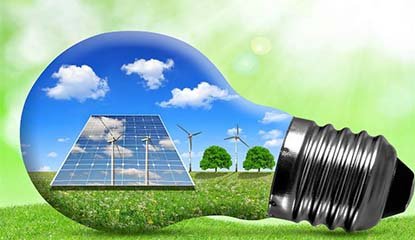Renewable energy projects are at the forefront of the global shift towards sustainable energy solutions, addressing climate change and reducing dependence on fossil fuels. From solar power to wind farms and hydropower to biomass, these projects harness the power of natural resources to generate clean, renewable energy. This blog explores various renewable energy projects, their impact on the environment, and the future of green energy technology worldwide.
1. Types of Renewable Energy Projects
1. Solar Power Initiatives
Solar power projects use photovoltaic (PV) cells to convert sunlight into electricity. Discuss large-scale solar farms, residential solar panel installations, and innovative technologies like solar rooftops and solar-powered vehicles.
2. Wind Energy Farms
Explore wind energy projects that capture the kinetic energy of wind through turbines. Highlight offshore wind farms, onshore wind projects, and advancements in turbine technology that increase efficiency and output.

3. Hydropower Projects
Hydropower utilizes the energy of flowing water to generate electricity. Discuss various hydropower projects, from large dams to small-scale micro-hydro systems, and their role in providing sustainable energy to communities.
2. Innovative Renewable Energy Technologies
1. Biomass Energy
Biomass energy projects convert organic materials, such as agricultural waste and wood pellets, into electricity, heat, or biofuels. Explore the benefits of biomass energy and its potential to reduce waste and greenhouse gas emissions.
2. Geothermal Energy
Geothermal energy harnesses the Earth’s internal heat to generate electricity and provide direct heating. Discuss geothermal power plants, residential geothermal systems, and the untapped potential of this sustainable energy source.
3. Environmental and Economic Impact
1. Reducing Carbon Footprint
Highlight how renewable energy projects significantly reduce carbon emissions and mitigate climate change. Discuss the environmental benefits of transitioning from fossil fuels to renewable energy sources.
2. Economic Benefits
Explore the economic advantages of renewable energy projects, including job creation, energy independence, and long-term cost savings. Highlight success stories of communities and countries that have invested in green energy infrastructure.
4. Future Trends and Global Initiatives
1. Technological Advancements
Predict future trends in renewable energy technology, such as advancements in energy storage, smart grids, and the integration of artificial intelligence to optimize energy production and consumption.
2. Global Renewable Energy Initiatives
Highlight global initiatives and agreements aimed at promoting renewable energy adoption, such as the Paris Agreement, the International Renewable Energy Agency (IRENA), and regional partnerships for sustainable development.
Conclusion
Renewable energy projects represent a pivotal shift towards a sustainable and environmentally responsible future. By harnessing the power of the sun, wind, water, biomass, and the Earth’s internal heat, we can reduce our carbon footprint, create economic opportunities, and ensure a cleaner, greener planet for future generations. Embrace the potential of renewable energy, support innovative projects, and join the global movement towards sustainable energy solutions that power a better tomorrow.

